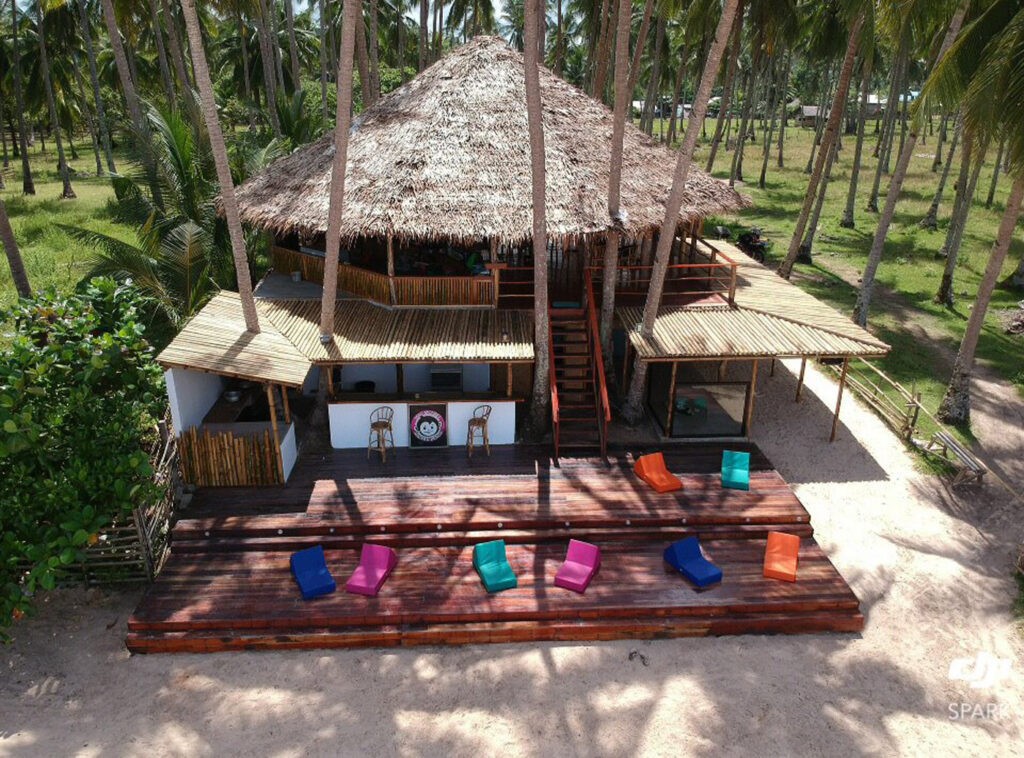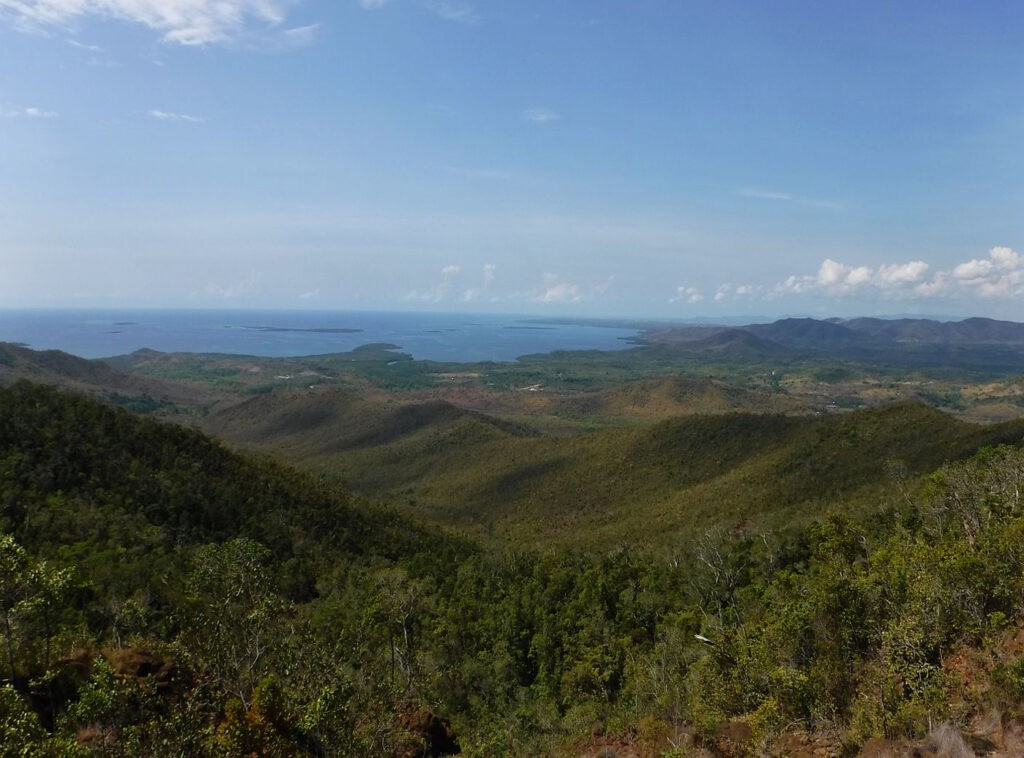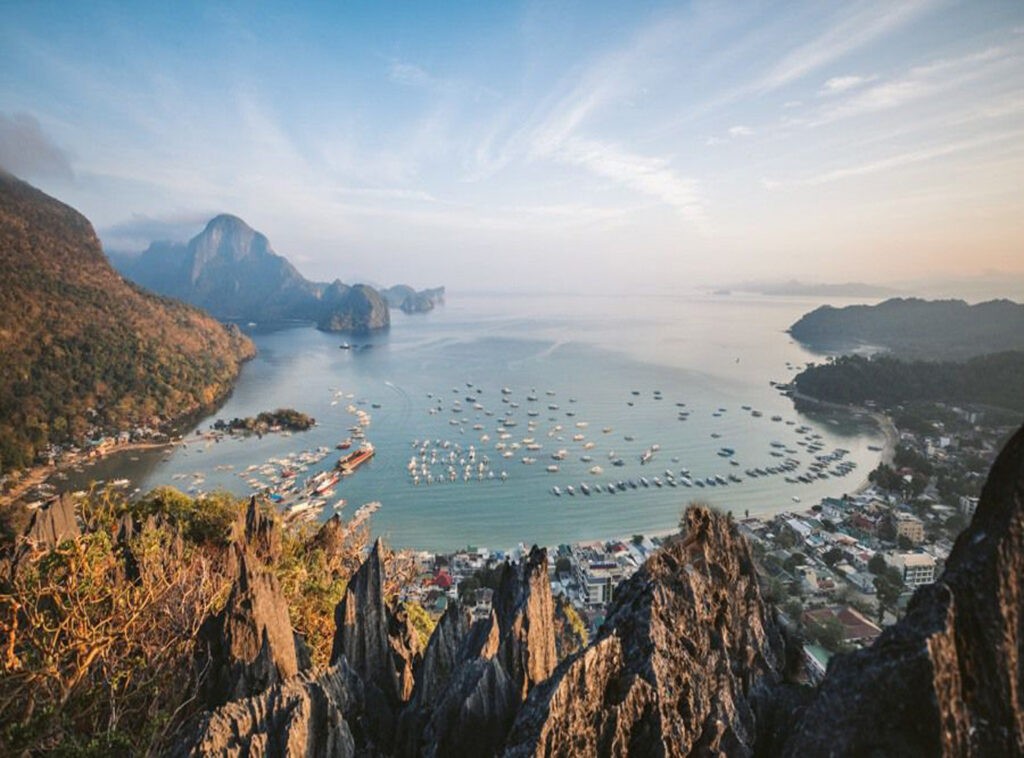Backpacking
Brought to By Caltex Havoline AutoPro - Puerto Princesa
William Tan Enterprises Inc.
Don't forget to show your CLC sticker every time you gas up at any Caltex Station.
Join now for the continuity and journey with Caltex!! ️
Backpackers Islands Tour, Camping and Expedition - El Nido, Palawan
$$ El Nido
Camping and Expedition
Tips
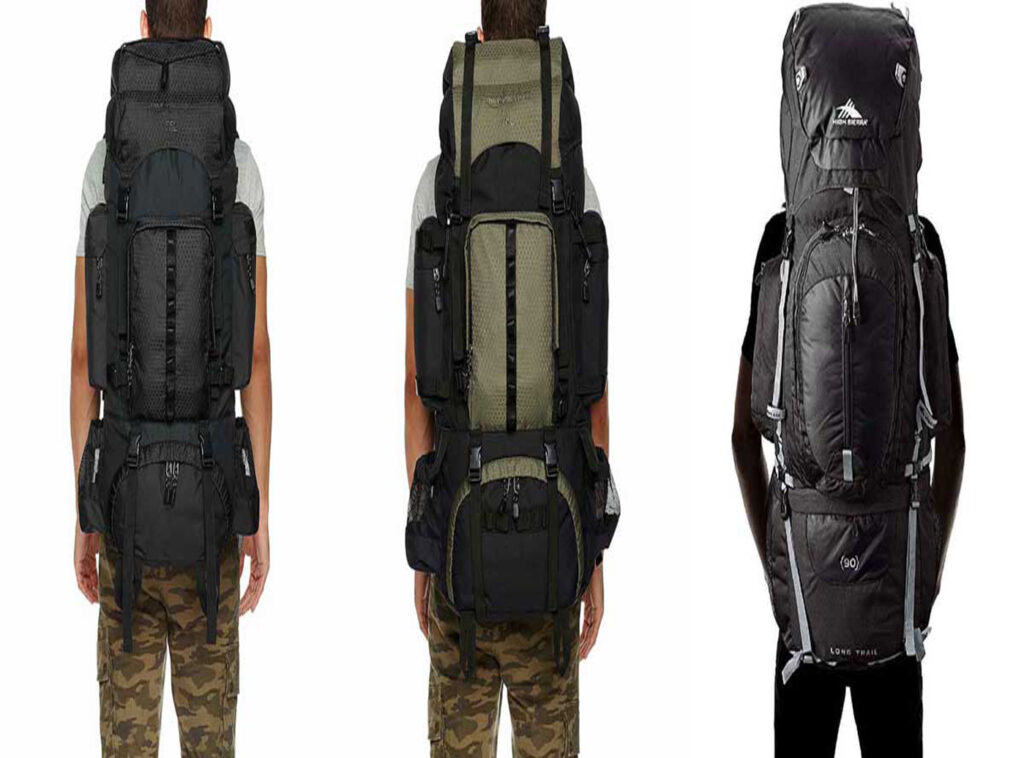
Don’t pack too much stuff
The number one backpacking tip is to remedy the classic backpacker mistake: bringing too much stuff.
We’ve all seen backpackers carrying way too much stuff and getting on public transport is a nightmare.
When packing for a backpacking trip, take the pile of clothes you think you need and cut the number in half. Then cut it in half again. Seriously.
If you are not using what you packed at least once a week, then it doesn’t belong in your backpack.
Rather than pack multiple items of mediocre quality, invest in multi-purpose backpacking gear and clothing that will give you years of use in a variety of different climates. In time, you will find you only pack the bare essentials and you’ll be much happier when your pack is a comfortable weight.

Be mindful of your health
It’s easy to go overboard while you travel because there’s often no one around to call you out.
This means you’ll be more susceptible to drinking too much, overeating, and doing reckless or dangerous activities.
Healthy Mind Healthy Body
If you’re going backpacking for a long period of time and don’t want to break down halfway, then take care of yourself: it’s the best piece of backpacking advice for any traveler.
Eat as you would back home, that is, consciously. Don’t drink too much. It may be one of the hardest traveling tips to follow, but maybe try and working out every once and while as well
Eat street food( But Be Wise)
Keep your backpack within sight
Use rideshare apps, not taxis
Don’t over plan
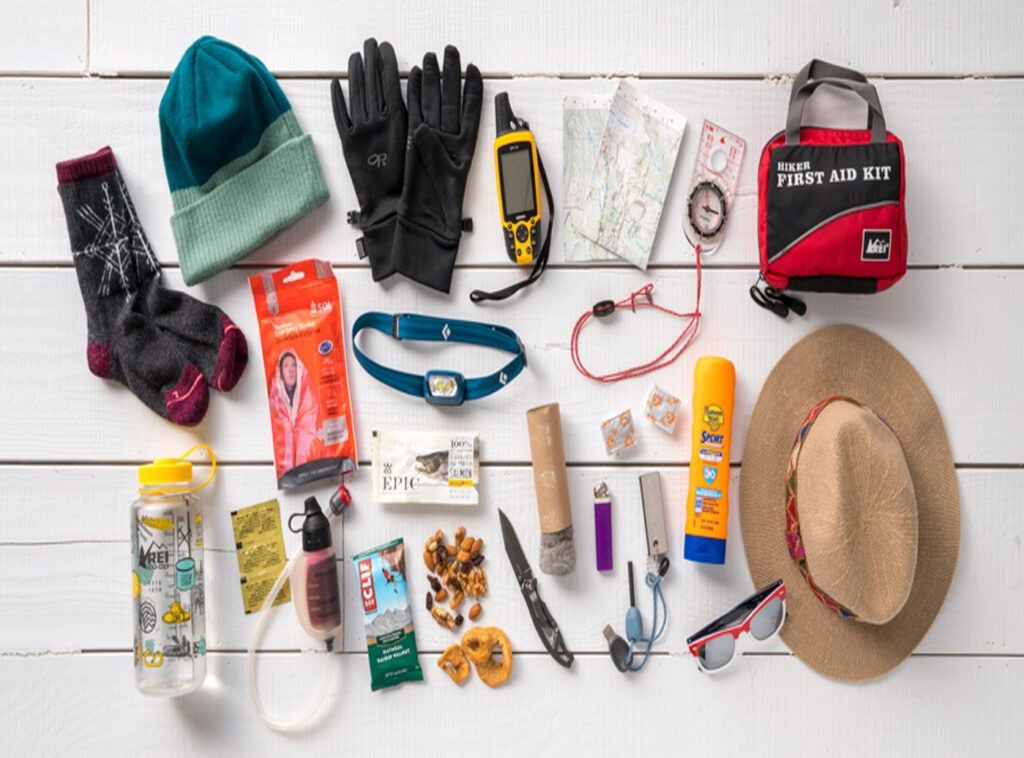
Essential Backpacking Gear and Clothing
Packing the “Ten Essentials” whenever you step into the backcountry, even on day hikes, is a good habit. True, on a routine trip you may use only a few of them or none at all. It’s when something goes awry that you’ll truly appreciate the value of carrying these items that could be essential to your survival.
Ten Essential Systems
- Navigation: map, compass, altimeter, GPS device, personal locator beacon (PLB) or satellite messenger
- Headlamp: plus extra batteries
- Sun protection: sunglasses, sun-protective clothes and sunscreen
- First aid including foot care and insect repellent (as needed)
- Knife plus a gear repair kit
- Fire matches, lighter, tinder and/or stove
- Shelter carried at all times (can be a light emergency bivy)
- Extra food Beyond the minimum expectation
- Extra water Beyond the minimum expectation
- Extra clothes Beyond the minimum expectation
Incredible hostels are always hard to come by.
On the road, you’ll have more “this hostel was a nightmare” moments than, “Wow! This hostel is amazing, I never want to leave!” moments.
There are some hostels I have stayed in that I will never forget, both for the right and wrong reasons.
However, I always remember hostels that serve amazing breakfasts!
Plan ahead for every step
“Plan ahead and prepare” is the first of the seven Leave No Trace principles, which every backpacker should follow. These principles are designed to keep users of natural spaces safe, while also minimizing human impact in the outdoors, with guidelines on respecting wildlife, traveling and camping on durable surfaces, and disposing of waste properly, to list a few. In addition to learning the “LNT’s,” familiarize yourself with reading a topographic map to determine your mileage, spot water sources, decide where to set up camp, and map your overall route and evacuation routes for each day on paper.
Gaia GPS is a helpful interactive map tool for plotting out your course, and can offers insights about elevation, water sources, and the length of a route so you can plan rest stops. The app also has the ability to download maps for offline use, if your phone GPS will work during the journey—but it’s crucial to plot out the route on a paper topographic map in case you lose service.
Hire a guide
While research is helpful, no amount of preparation can equate to actual experience. Backpacking with a guide isn’t a necessity, but it can help you avoid some of the discomfort that is inevitably going to occur during your first few trips. An experienced backpacker knows how to properly dispose of waste, where (and where not) to set up camp, how to choose a backpacking route based on available water sources and fitness level, and other skills that can only be sharpened by spending time in the field.
No matter when you start backpacking, know that the learning continues, and that’s part of the adventure. Every time I venture into the backcountry, I find a new skill or trick to make the experience more fun and comfortable. For example, in recent years, I replaced my water filtration pump and iodine tablets with a bleach dropper—an easier method than pumping that provides better tasting results than iodine tablets. Those lessons come with experience. But you don’t need to be a pro with perfected methods and systems to hit the trail; you just need to be prepared, so you can safely get that crucial firsthand experience of your own.
Hostel Tips
Cheaper is not always better
Budget travelers have a natural inclination to go with the cheapest thing around. However, don’t try to save a buck just to save a buck. Super cheap hostels are often unclean, the beds uncomfortable, the showers dirty, and the pillows thin. Pay an extra dollar or two for nicer and cleaner digs. Your body will thank you.
Remember, it’s not about being cheap — it’s about getting value
Location, location, location
Where a hostel is located will have a huge effect on your experience. If you have to spend an hour on public transportation just getting to and from your hostel every time you go into town, you’ll end up wasting a lot of your travel time.
The best hostels are close to the action, so you can just step out your door and into an adventure. That, or the hostels are so remote that just staying there is an experience in and of itself. But just inconveniently on the outskirts of town? That’s just inconvenient.
Knowledgeable staff
Employees make any business, and when I find the staff of hostels helpful, knowledgeable, and friendly, I like that place a lot better. A hostel is like a home, and you want the people there to welcome you like a long-lost family member.
I never understood why hostels don’t recognize that being a hostel is not about being a cheap place to stay, it’s about creating a warm environment.
Get breakfast
Look for a place with a decent breakfast (i.e., more than toast) or at least one that begins and ends when people are actually awake (breakfasts that start around 8am usually go late). Breakfast is also a great way to load up on snacks for the rest of the day, thereby cutting down your food budget.
Get a late check out
Never stay at a hostel with a checkout time before 10am. The best hostels have 11am checkout times, and the really good ones let you check out at noon.
Sleep is valuable on the road because you’ll rarely get enough of it.
Travel with a group to split costs
One of the best budget travel tips that you can take advantage of is traveling with a larger group in order to split costs. Booking a shared apartment, paying equal parts for a rental car, switching up who pays for gas or groceries; these are great ways to save cash while traveling.
It’s also a good way to travel safely. Larger groups are more intimidating to would-be thieves and everyone can watch each other’s back. It’s strength in numbers, my friends: backpacker travel gets easier with a team.
Lockers
It’s surprising, but I’ve actually been in hostels that don’t have lockers — or they have them but they charge you for them. In this day and age, lockers should be standard. You should never pay for security. This is a deal-breaker for me, especially since I travel with electronics. If you’re not sure about the locker situation, scan through the hostel’s reviews to see what people say. Always better to be safe than sorry!
Don’t forget to bring a lock with you!
Free Internet
While the Internet isn’t a must for all travelers, a hostel with free Wi-Fi is always a plus. While most hostels in the world have Wi-Fi these days, many still only have Wi-Fi in certain rooms (like the lobby or common room). Make sure you know what to expect before you book.
If you’re connecting to free Wi-Fi with your own smartphone or laptop use a VPN to keep your data private (especially if you’re doing any online banking).
Common area
If the hostel doesn’t have a bar, it should have a big common area (ideally it has both).
The best hostels are the ones that give travelers a place to hang out and socialize with each other.
Common areas facilitate interaction and help solo travelers have an easier time meeting people. The best hostels I’ve ever stayed at always had an amazing common area.
Keep an eye out for common rooms with board games, video games, a TV/movies/Netflix, instruments, and pool tables. Anything that can bring people together and help break the ice!
Organized activities
Really good hostels also organize activities such as walking tours, yoga classes, bar crawls, BBQs, or anything else that gets people together. Check out what is offered before you book to make sure it’s the kind of place for you. Additionally, make sure you know what activities are free and what are paid.
Also, do they have free equipment to use like bikes, snorkeling gear, surfboards, etc.? Free equipment will save you money and make it easier to hang out with other travelers.
A bar
Bars are not a deal-breaker, and there are a lot of wonderful hostels without them, but they make for a great place to socialize with other hostel guests. Usually, if a hostel has a bar, they put a strong emphasis on making sure the people staying there are having fun, interacting, and being festive.
If they don’t have a bar, make sure they host activities and events to get people together. Hostels are about a social atmosphere. If you want a place where no one interacts, stay at a hotel!
Hostels
Pick From the Best Hostels in Palawan, with Private Rooms, Wi-Fi, Breakfast.
Camping & Glamping
Pick From the Best Camping & Glamping in Palawan, with great views and activities.



